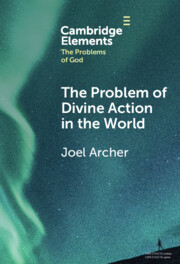Refine search
Actions for selected content:
77 results
1 - Fashion, Function, and Fine Art
-
- Book:
- A Philosopher Looks at Clothes
- Published online:
- 08 May 2025
- Print publication:
- 05 June 2025, pp 1-25
-
- Chapter
- Export citation
Chapter 1 - Introduction
-
- Book:
- Doppelgänger
- Published online:
- 13 March 2025
- Print publication:
- 20 March 2025, pp 1-17
-
- Chapter
-
- You have access
- HTML
- Export citation
Hume’s Scepticism and Kant’s Transcendental Deduction
-
- Journal:
- Kantian Review , First View
- Published online by Cambridge University Press:
- 03 February 2025, pp. 1-21
-
- Article
- Export citation
Chapter 13 - Hume and the Politics of Money
- from Part IV - Political Economy
-
-
- Book:
- Hume's <i>Essays</i>
- Published online:
- 02 January 2025
- Print publication:
- 09 January 2025, pp 247-262
-
- Chapter
- Export citation
Chapter 1 - The Reception of Hume’s Essays in Eighteenth-Century Britain
- from Part I - Reception
-
-
- Book:
- Hume's <i>Essays</i>
- Published online:
- 02 January 2025
- Print publication:
- 09 January 2025, pp 15-35
-
- Chapter
- Export citation
Chapter 8 - Reconstructing Oceana
- from Part III - Politics
-
-
- Book:
- Hume's <i>Essays</i>
- Published online:
- 02 January 2025
- Print publication:
- 09 January 2025, pp 143-161
-
- Chapter
- Export citation
Chapter 2 - The Reception of Hume’s Essays in Eighteenth-Century Germany
- from Part I - Reception
-
-
- Book:
- Hume's <i>Essays</i>
- Published online:
- 02 January 2025
- Print publication:
- 09 January 2025, pp 36-51
-
- Chapter
- Export citation
Chapter 3 - ‘Aussi hardi … qu’aucun philosophe en France’:
- from Part I - Reception
-
-
- Book:
- Hume's <i>Essays</i>
- Published online:
- 02 January 2025
- Print publication:
- 09 January 2025, pp 52-70
-
- Chapter
- Export citation
5 - Rights, Property, and Politics
- from Part I - A Revolution in Rights?
-
-
- Book:
- The Cambridge History of Rights
- Published online:
- 22 January 2025
- Print publication:
- 28 November 2024, pp 114-139
-
- Chapter
- Export citation
The creation of a wine entrepôt in 18th-century Boulogne-Sur-Mer: Dedicated commodity chain, politics, and enlightenment economists
-
- Journal:
- Journal of Wine Economics / Volume 20 / Issue 1 / February 2025
- Published online by Cambridge University Press:
- 21 November 2024, pp. 26-48
-
- Article
-
- You have access
- Open access
- HTML
- Export citation
1 - Introduction
-
- Book:
- The Theological Imagination
- Published online:
- 09 November 2024
- Print publication:
- 07 November 2024, pp 1-36
-
- Chapter
- Export citation
Chapter 24 - History Writing
- from Part III - Literary Contexts
-
-
- Book:
- Oliver Goldsmith in Context
- Published online:
- 28 November 2024
- Print publication:
- 07 November 2024, pp 201-208
-
- Chapter
- Export citation
4 - Incoherence Brought to Order: Empiricism and the Essay
- from Part I - Forming the British Essay
-
-
- Book:
- The Cambridge History of the British Essay
- Published online:
- 31 October 2024
- Print publication:
- 04 July 2024, pp 48-62
-
- Chapter
- Export citation
28 - Plain English: Essays and Analytic Philosophy
- from Part III - Assaying Culture, Education, Reform
-
-
- Book:
- The Cambridge History of the British Essay
- Published online:
- 31 October 2024
- Print publication:
- 04 July 2024, pp 421-436
-
- Chapter
- Export citation
Chapter 8 - The Enlightenment
- from Part II - Pan-European Moods and Movements
-
-
- Book:
- Europe in British Literature and Culture
- Published online:
- 06 June 2024
- Print publication:
- 13 June 2024, pp 133-148
-
- Chapter
- Export citation
2 - The Reasonable Person in Birmingham
-
- Book:
- The Reasonable Person
- Published online:
- 30 May 2024
- Print publication:
- 06 June 2024, pp 33-58
-
- Chapter
- Export citation
Introduction
-
- Book:
- Some New World
- Published online:
- 29 March 2024
- Print publication:
- 18 April 2024, pp 1-12
-
- Chapter
- Export citation
1 - Hume’s Dilemma
-
- Book:
- Some New World
- Published online:
- 29 March 2024
- Print publication:
- 18 April 2024, pp 13-23
-
- Chapter
- Export citation
2 - Global Legal Pluralism and Constitutionalism
- from Part I - Common Theories on the Relationship of Legal Orders and Their Flaws Concerning the EU Legal Order
-
- Book:
- Rethinking the Relationship between International, EU and National Law
- Published online:
- 29 February 2024
- Print publication:
- 14 March 2024, pp 59-94
-
- Chapter
- Export citation

The Problem of Divine Action in the World
-
- Published online:
- 08 December 2023
- Print publication:
- 01 February 2024
-
- Element
- Export citation
